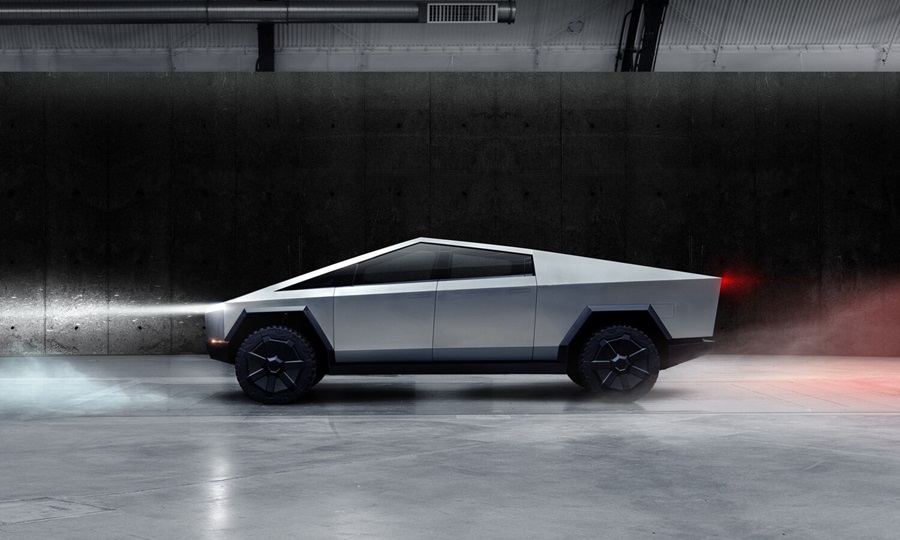The automobile segment has ramped up and evolved to the extent that you can think of doing more with a car than just drive and park. The new generation of vehicles is equipped with smart devices. From GPS technology to augmented reality, the user can remote control the systems through speech instructions using a data glass considered the “third-hand,” emergency breaks, auto-parking, auto-driving, or free-hand driving mode, and upgraded fuel efficiency are all advanced features.

Undoubtedly, cars these days are loaded with multitudinous features, making a driver’s ride significantly smoother on the roads. Manufacturers not only add luxe to the vehicles but also take immense care in designing safety features. The automotive industry is evolving speedily with the breakthroughs in technology and has ample scope for further advancements. We are already one step closer to a more sophisticated and digitized environment. One such technology is the App Blinker that empowers the users to buy, sell, and even finance cars with a blink of an eye on their smartphones.
Let’s dig in to find some of the most trailblazing and revolutionary technologies that you should be eying in the future.
Contents
Higher Fuel-Efficiency will Gain Grounds

Tesla is the leading pioneer in steering the fuel-efficiency movement, introducing cutting-edge technology in cars with its electric and hybrid vehicles to transport you to another world with light speed in a single charge. They sold over 2 million electric vehicles across the globe in 2016. This number seems to be rising as many automotive manufacturers are upgrading cars to electric models. General Motors and VW have recently launched electric vehicles, while Volvo also produced engines with an electric motor in 2019. This insurgence of green vehicles is the outcome of growing awareness for eco-friendly and sustainable living among auto manufacturers, common masses, and governments worldwide. Therefore, automobile manufacturers have begun to throw their energy into designing incredible fuel-efficient vehicles.
Autonomous Vehicles Growing in Leaps and Bounds

Auto-pilot mode is the most exciting technology and is bound to draw many driver’s attention. Who would have ever thought of a car steering for itself? This is a unique idea that has revolutionized the automobile industry. It’s called autonomous driving technology, leaving the driver hands-free. Functionalities like cruise control, self-parking, automatic brakes, and lane sensors are key highlights of such cars’ fleet. Waymo is a self-driving pod released by Google very recently. Local Motors also launched a fully-automatic vehicle parallel to it. Ford’s self-driving car is in the pipeline as well, which may hit the markets by 2021.
Proactive Alerts, Safety, and Security Features

Artificial Intelligence (AI) and Machine Learning (ML) have played a vital role in defining the auto-industry future as predictive functionalities have become indispensable in cars, enabling the consumers a luxe and personalized riding experience. Many manufacturers apply algorithms that utilize data to automate the vehicle’s systems, such as infotainment and play settings. Smart cars run on the IoT (The Internet of Things) concept, harmoniously using a series of interconnected sensors embedded within the vehicle. These devices in the car are connected to your smartphones so that you can give voice commands and do other manipulations. One of the most profound examples of predictive vehicle technology is its ability to notify the consumer well about the future maintenance or repair of a specific part of the car, which may not be detected by the standard sensors. Think about it, you are on the road, and your car alerts you about a possible system failure. Won’t that be your savior?
Cars-as-a-Service
Smartphone owners can avail of this ride-sharing driverless service; they can book their pick up through an app. This service does not require a driver’s license, and it acts as a driverless Uber.
Smart Homes Will Work in Sync with Cars

Smart Home personalized devices like Amazon Alexa are extensively used to integrate with cars to assist drivers and ease their riding experience. This sync acts quite similar to smart home devices and performs tasks such as opening the garage door and turning on voice recognition lights. These smart apps are sure to add more utility to a car than just driving.
Although Americans have been using gadgets for centuries now, this industry’s future will hugely impact their lives with the new-folded technology.
Conclusion
The 21’st century has witnessed an enjoyable and undeniable boom. The automobile industry has profited the most from technological advancements. IoT and many other smart devices synced with cars have added oomph and delight to rider’s experiences, from the GPS mapping system to augmented technologies. The new generation cars function like smart devices and give speech commands to switch on the lights and open the garage door.
Considering all of these advanced features like fuel efficiency, predictive automobile technology, and smart applications, the automatic vehicle industry will grow exponentially.


